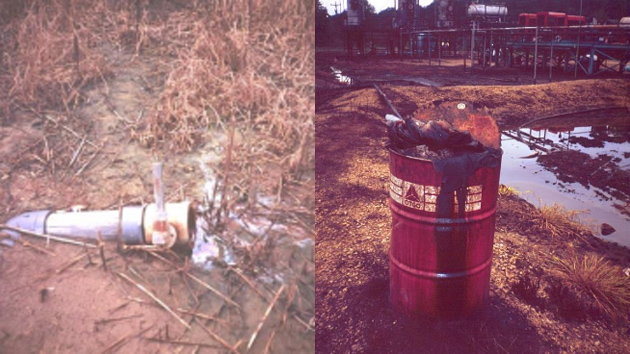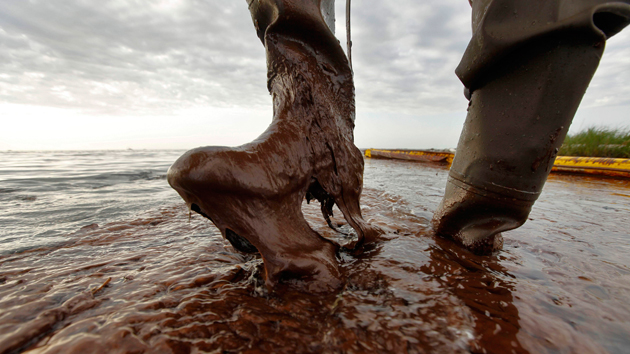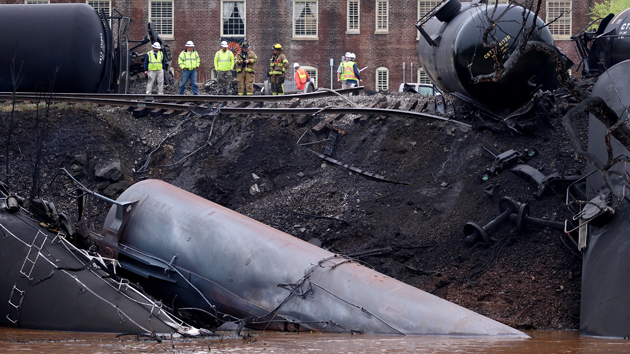
<a href="http://naturalresources.house.gov/uploadedfiles/matsontestimony5-20-14.pdf">Noah Matson Testimony</a>
This story originally appeared in the Huffington Post and is republished here as part of the Climate Desk collaboration.
Congressmen who are angry at US Fish and Wildlife Service enforcement of environmental regulations were not outraged by an activist’s photos showing oil pipes and tanks repaired with duct tape and trash bags.
In fact, Reps. Vance McAllister and John Fleming, both Republicans from Louisiana, berated a Democratic witness from the Defenders of Wildlife on Tuesday for illustrating abuses in wildlife refuges with photos of oil-slicked ponds; abandoned, leaky drums; and even bags and duct tape used for as long as a year to stave off spills in Louisiana national wildlife refuges.
The hearing before the Natural Resources Subcommittee on Fisheries, Wildlife, Oceans and Insular Affairs was billed as an oversight session on “oil and gas activities within our nation’s wildlife refuge system.”
But the GOP members seemed more concerned with the activities of the regulators and environmental groups than the drillers.
“I see those pictures, and understand how a picture is worth a thousand words,” said McAllister, who worked in the oil technology and pipeline business before he won a special election to Congress last year.
“You took a picture of someone who was innovative, and rather than leaving the fluid to drip on the ground, repaired it with duct tape and a garbage bag, and yet you seem to be very upset about that,” McAllister told Noah Matson, vice president of Defenders of Wildlife.
“We’re damned if we do and damned if we don’t,” McAllister added. “We take a garbage bag and fix it and keep it from leaking and yet you’re still not happy, and come to Washington and testify before Congress and want to throw fits because some guy took initiative.”
Matson, who noted that the photos were actually taken by Fish and Wildlife Service officials, pointed out that it would be extremely easy for something to go wrong with tape and plastic-bag patches, and that at least one of the jury-rigged repairs appeared to be a year old, based on the photos. Another was at least two months old, he said.
That didn’t matter to McAllister, who seemed to consider the repairs sufficient and suggested that presenting evidence of environmental damage was a waste of legislators’ time. “It just aggravates me that the body of Congress would be wasted with someone coming up and taking pictures of something that shows that it is fixed,” he said.
The hearing was especially important to the two members from the Pelican State, Fleming said, because nearly 70 percent of the 1,670 active oil and gas wells in the national refuge system are in Louisiana.
He also was not alarmed by the photos, but suggested they might unfairly sway others.
“That’s an old, old technique used to create emotion,” Fleming said. “Without the full context, without a full evaluation and an examination that is done by both parties and presented to us, this would be considered in a court of law prejudicial to show pictures such as that.”













